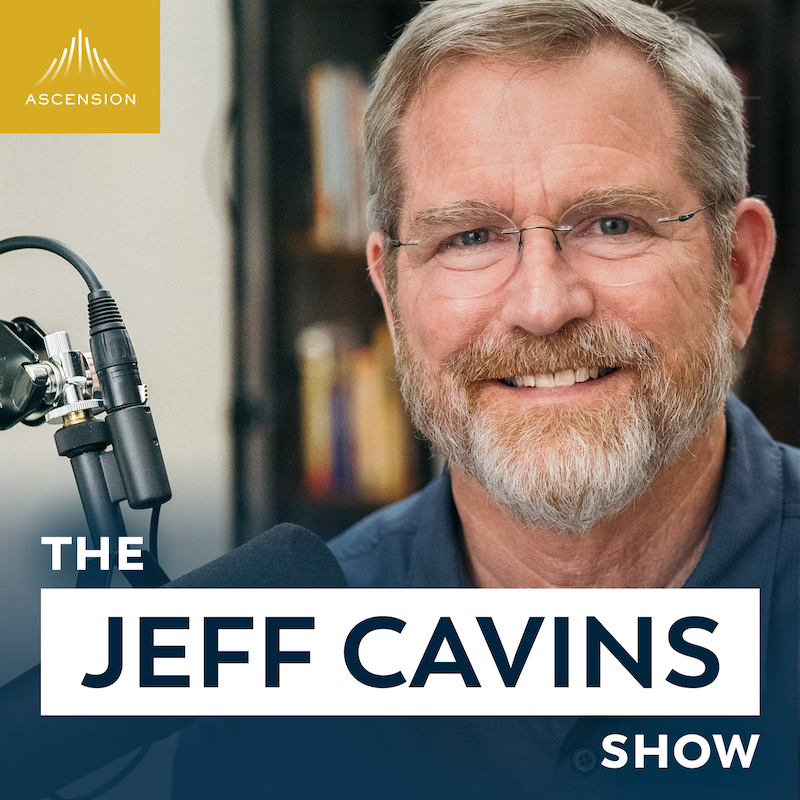Society preaches three seemingly innocent phrases: “Be true to yourself;” “You be you;” and “You do you.” They all communicate the same philosophy: everyone should unapologetically do what he or she wants, because that’s the path to freedom. Dr. Sri argues how much more freeing and incredible it is to follow the call of the Christian Gospel, which shows us how we are most true to ourselves when we die to ourselves and “put on Christ.”
Snippet from the Show
The world tells us “you be you,” but Jesus didn’t die so that I could just be me … he died so that I could become like him.
The “You Be You” and “Be True to Yourself” Gospel
You’ve probably heard people say, “You be you,” “You do you,” or “Be true to yourself.” These phrases are all variations of the same thing. They essentially imply there’s no right or wrong way to “be” in the world; everyone needs to just do whatever we feels best for them. However, this pervasive relativistic philosophy makes it hard for us to repent. Here’s why: if we fall prey to the idea that it’s most important to be true to ourselves and to follow our hearts, we risk being true to God and following his ways.
The Secular Way vs. The Christian Way
Christianity tells us that God created us out of love and has a unique plan for our lives that will unfold as we become more like him.
The secular world tells us something different. It tells us that each person creates his or her own purpose in life, and no one else can question the merits of behavior so long as that person is being true to themselves. Everything is a matter of preference—if someone wants to drink excessively, the world tells us that that’s their prerogative. If someone wants to be unfaithful because it feels like they’re being true to themselves, the world tells us they are “following their heart.”
St. Paul’s call to repent and become like Christ stands in stark contrast to this secular mentality. St. Paul writes:
“Let us then cast off the works of darkness and put on the armor of light; let us conduct ourselves becomingly as in the day, not in reveling and drunkenness, not in debauchery and licentiousness, not in quarreling and jealousy. But put on the Lord Jesus Christ, and make no provision for the flesh, to gratify its desires.”
Romans 13:12-14
Though we all tend towards sin, we are not condemned to a life of being true to our fallen selves. Instead, we are called on by the truth that each of us is created in the image and likeness of God, and that through repentance we die to ourselves and “put on Christ.”
The Danger of “Therapeutic Deism”
Notre Dame Professor of Sociology Christian Smith talks about this concept of “therapeutic deism” in relation to the faith of many young people today. “Deism” is the idea that God created the world, and then just sat back to watch everything play out. In other words, God in the concept of “deism” is not involved in our lives past our initial creation. In “therapeutic deism” however, God is slightly involved in our lives, but only helps when we have problems that need fixing.
Has Therapeutic Deism Crept into Your Spiritual Life?
Here are several areas to examine whether your spiritual life has become infiltrated by therapeutic deism.
- Your prayer life: When you pray, are you only focusing on you? How much time do you spend reflecting on the person of Christ and the glory of God?
- The way you treat those around you: Are you striving to treat people the way Jesus would, or do you react to others according to your own feelings?
- How you live your life: Are you living your life for Jesus, or are you living according to your own wants and desires?
- How you handle problems: Do you view problems in your life as purely external misfortunes, or do you look at them as opportunities to encounter Christ?
Resources:
- Visit Dr. Sri’s website at https://edwardsri.com/
- Subscribe to the show resources by texting “allthingscatholic” to 33-777
- Find more of Dr. Sri’s episodes at ascensionpress.com/allthingscatholic
- Learn more about Professor Christian Smith





What an amazing article! Makes you really think even when you think you are following God!
I agree with the underlying point of this article, but I think you set up the problem as an ‘either/or’ situation, instead of ‘both/and’. It is not a matter of either being yourself, or like Christ. When we are most fully ourselves, who God created us to be, we are also most like Christ. We can be both ourselves and like Christ. This is what we are called to. Sanctity/Sainthood is being most fully ourselves, which is who God created us to be. In our Sainthood we will fully embody a particular aspect of God. The Saint are not clones of one another. They each are fully themselves in their uniqueness, having various personality traits and charisma. All of us have that same uniqueness. The culture has certainly warped this truth. The evil one has twisted the truth, but truth is present, and needs to be reclaimed.
Agreed!